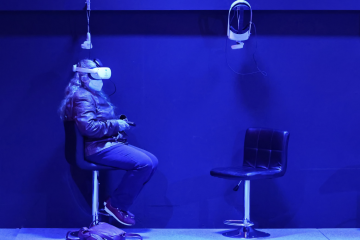The distinction between student activism and behaviour considered disruptive under the McGill Student Code of Conduct (SCOC) has been much debated this year on campus. In the wake of the Nov. 10 tuition-hike protest and the resulting police action, it struck many that the line between unacceptable behaviour and freedom of speech is not as well agreed upon as could be hoped.
Allison Cooper, a McGill student who has played a role in both the “Independent Student Inquiry into the Events of November 10th” and the McGill Association of University Teachers’ (MAUT) report on the same subject, pointed out that one issue discussed within both reports was the vagueness and inconsistency of the language in the SCOC.
Section of 5 of the SCOC forbids any student from deliberately obstructing university activities, including teaching, research, studying, administration and public service. However, Section 5 (c) also states that the SCOC shall not be construed to prohibit peaceful assemblies, demonstrations, lawful picketing or inhibit freedom of speech.
To delve further into its ambiguity, Section 6 forbids Unauthorized Entry and/or Presence, Section 7 has to do with Theft, Damage and Destruction of Property while section 8 covers Physical Abuses, Harassment and Dangerous Activity. Tying together all of the above prohibitions in an activist context, section 13 pertains directly to demonstrations, as it forbids any threat of violence to groups or individuals or towards behaviour that violates the SCOC.
According to the Code of Conduct, the obstruction of university activities is illegal, but removal of the obstruction must not inhibit peaceful demonstrations and freedom of speech. Dean of Law Daniel Jutras’s “Report of the Internal Investigation into the Events of November 10, 2011” admitted to the gaps in this code.
The Dean wrote “Even if free speech and peaceful assembly are broadly defined at McGill, the limits on those rights – and the justifications for those limits – remain uncertain.”
The Dean goes on to say that one of the more definite lines that does exist is that violent behaviour, being behaviour that is harmful to persons or property, is impermissible in a protest or demonstration context.
Indeed, in the wake of the James Administration Building occupation, also known as #6Party, McGill has seen it necessary to put in place a provisional protocol that clarifies what is acceptable and unacceptable at a student demonstration. The Provisional Protocol explicitly forbids several things not mentioned in the Student Code of Conduct including demonstrations that compromise the university’s safe and secure environment, impedes the conduct of university activities as defined in the SCOC, pose a risk to university property, occur in private spaces or other restricted areas, obstruct access to buildings, or continue past the normal operating hours of the university.
The protocol provides clarification of some aspects of the SCOC. Many of these clarifications were called for in the Jutras Report, such as a statement on whether protests can take place at any time and location on campus. Since many of the things formally mentioned in the Provisional Protocal were already implicitly forbidden, and there has been little resulting enforcement of the Provisional Protocol, arguably the Provisional Protocol has not further restricted freedom of speech on campus.
However, there is also an argument that it has “changed student sentiment by making explicit the way that the university has criminalised dissent, even if it hasn’t been enforced,” Cooper said.
A perception of the criminalisation of dissent may be in many ways just as hazardous as its actualisation when it comes to the free exchange of ideas on campus. With explicit consequences for illegal but non-violent forms of dissent such as McGill Residence and Student Housing’s decision to fire two floor fellows who participated in #6party, students may be scared away from legitimate forums for dissent, even forums that are set up explicitly for that purpose.
Following the Jutras Report, the university has attempted to put in place positive legal forums for dissent and discussion on issues like freedom of speech. Cooper has criticized the Open Forums, stating that students seemed outnumbered and “it felt like a media show”. Whether from a lack of student interest or availability to attend the forums, or deliberate boycotting brought on by these negative perceptions, there has been low attendance and general student disapproval of these forums, as reported in both the McGill Tribune and the McGill Daily.
The line between freedom of speech and disobedience at McGill is perhaps now messier than ever. There is hope that the Dean of Arts, Christopher Manfredi’s upcoming report on the results of the Open Forums, announced for June 9, will lead to more recommendations on how to move forward – through permanent alterations to the SCOC, a re-evaluation and reform of the currently existing forums, or the creation of effective new types of forums for political expression and dissent on campus.






